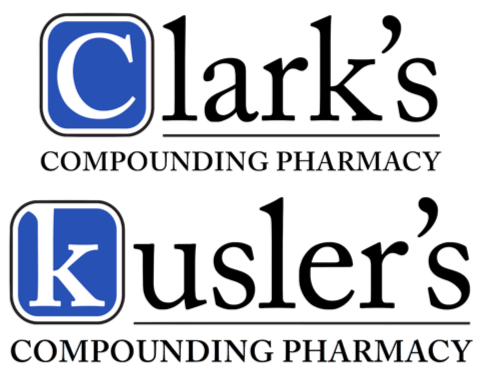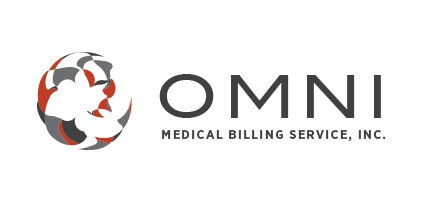CONNECT 2023
Back to the Future: From Foundations Forward
May 4-7, 2023
CONNECT 2023 is now over.
Thank you to all who attended CONNECT 2023 either virtually, in-person, or both! If you are interested in viewing the presentations from CONNECT 2023, you can find those available for purchase on our Continuing Education page.
Save the Date!
CONNECT 2024 is planned for May 3-5, 2024. Mark your calendars for another year of high quality continuing education!
CONNECT 2023 Schedule
Please note: In addition to the approximately 13.5 CE credits offered May 4-5, Virtual Only Attendees will receive access to approximately five (5) additional credits (lecture recordings from the in-person days) shortly after CONNECT 2023.
Thursday, May 4, 2023 • 8:30am - 5:00pm PDT [Virtual]
8:30a-9:00a | Welcome & Overview of Conference Platform and Flow
9:00a-10:00a | Exocrine Pancreatic Insufficiency & Bile Acid Malabsorption: Commonly missed IBS-mimickers | Megan Taylor, ND
10:00a-10:30a | Break
10:30a-11:30a | A Comprehensive Integrative Approach to Chronic Pain | Todd Born, ND, CNS
11:30a-12:30p | Advanced Dosing Protocols with LDN | Michelle Moser, RPh, FACP, FACA, FACVP
12:30p-1:30p | Lunch / Break
1:30p-2:30p | Autoimmune Thyroiditis: Updates on Assessment, Prognosis, & Treatment | Jennifer Bennett, ND, LAc
-----------------------
1:30p-2:30p | Next Step Imaging | Calixto Dimas, MD
2:30p-3:30p | Nutrition for Naturopathic Gastroenterology | Christine Bowen, ND, FABNG, CGP
3:30p-4:00p | Break
4:00p-5:00p | "Roads? Where we're going, we don't need roads." Understanding how to diagnose and treat PANDAS/PANS | Hatha Gbedawo, ND; Sarah Lemley, MPA
Friday, May 5, 2023 • 8:30am - 5:00pm PDT [Virtual]
8:30a-9:45a | How to Dose Insulin Properly | Jody Stanislaw, ND
9:45a-10:15a | Break
10:15a-11:30a | An Evidence Based Naturopathic Approach to Dementia Care | Heather Sandison, ND
11:30a-12:30p | Microbiome Testing in Clinical Practice: Review of stool testing techniques and an advanced introduction to the microbiome | Carly Polland, ND
1:30p-3:30p | Low Dose Botanicals | Jillian Stansbury, ND
3:30p-4:00p | Break
4:00p-5:00p | The Ins and Outs of Semaglutide for Weight Loss | Kelsey Klausmeyer, ND
Saturday, May 6, 2023 • 7:30am - 10:00pm PDT [Bastyr University]
7:30a-8:30a | Breakfast
8:30a-9:00a | Welcome
9:00a-10:00a | Laceration Course | Tera Johnson, CPNP-PC [Hands-on Lab - Pre-registration required]
- - - - - - - - - - - - - - - - -
9:00a-10:00a | Low-Dose/High-Risk Herbs: What you need to know to stop your insurance company from dumping you | Jenn Dazey, ND [Lecture]
10:00a-10:30a | Exhibitor Break
10:30a-12:30p | Simple Injection Techniques for Pain Management | Jeff Harris, ND [2-hour Hands-on Lab - Pre-registration required]
- - - - - - - - - - - - - - - - -
10:30a-11:30a | Pediatric Bronchiolitis, Asthma, & Reactive Airway Disease | Tera Johnson, CPNP-PC [Lecture]
11:30a-12:30p | Public Health in Washington State: Overview of the public health system, key program areas, and resources for Naturopathic Physicians | Shawn Morris, ND [Lecture]
12:30p-1:30p | Lunch / Exhibitor Break
1:30p-3:30p | Elegant Access to Veins | Mandy Gulla, ND, LMT; Susan Hodge Mueller, ND [2-hour Hands-on Lab - Pre-registration required]
- - - - - - - - - - - - - - - - -
1:30p-2:30p | Clinical Applications of Next Generation Sequencing: Unlock your patient’s microbiome & create personalized gut protocols | Carly Polland, ND [Lecture]
2:30p-3:30p | Specialty Compounded Medications for Acute and Chronic Pain | Dawn Ipsen, PharmD [Lecture]
3:30p-4:00p | Exhibitor Break
4:00p-5:00p | Addressing the Root Cause of Eczema | Julie Greenberg, ND, RH(AHG), MBA [Lecture]
5:00p-7:00p | Job Fair
7:00p-10:00p | 80s Dance Party!
Sunday, May 7, 2023 • 7:30am - 5:00pm PDT [Bastyr University]
7:30a-8:30a | Breakfast
8:30a-10:00a | A Positive ANA... Now What? | Jennifer Bennett, ND, LAc [Lecture]
10:00a-10:30a | Exhibitor Break
10:30a-12:30p | Punch Biopsies for Primary Care Physicians | Joshua Rubinstein, ND [2-hour Hands-on Lab - Pre-registration required]
- - - - - - - - - - - - - - - -
10:30a-11:30a | The Nose Knows: The role of olfaction in Parkinson's disease | Laurie Mischley, ND, PhD, MPH [Lecture]
11:30a-12:30p | A Breakthrough in the Detection of Parkinson's Disease | Mandy Gulla, ND, LMT; Lisa Holt, CNWI, ABCMT; Peter Ledochowitsch, PhD [Panel discussion]
12:30p-1:30p | Lunch / Exhibitor Break / Legislative Lunch
1:30p-2:30p | The New Herbal Bitters: New uses for the most ancient of tastes (Part 1) | Glen Nagel, ND [Lecture]
2:30-3:30p | The New Herbal Bitters: New uses for the most ancient of tastes (Part 2) | Glen Nagel, ND [Hands-on Lab - Pre-registration required]
- - - - - - - - - - - - - - - -
2:30p-3:30p | Enteroendocrine Dynamics | Mi-Jung Lee, ND, LAc [Lecture]
3:30p-4:00p Exhibitor Break
4:00-5:00p | "Unimportant" Molecules, Unintended Consequences | Joseph Pizzorno, ND [Lecture]
CONNECT 2023 Speakers

Jennifer Bennett, ND, LAc
Autoimmune Thyroiditis: Updates on assessment, prognosis, and treatment
&
A Positive ANA... Now What?
View abstract - Thyroiditis
Autoimmune thyroiditis (Hashimoto’s and Graves’ Disease) affects 3-4% of the populations. Since the COVID-19 pandemic those numbers have risen. The thyroid gland is especially affected by changes in immune system stimulation, as well as systemic biological systems such as endocrine and metabolic triggers. In this talk, we will walk through how to diagnose autoimmune thyroiditis (both Hashimoto’s and Grave’s Disease) as well as how to assess antibody levels, how antibodies affect the disease process, and how to manage elevated levels of antibodies. Additionally, we will discuss some of the research around the controversial use of iodine in those with autoimmune diseases, how and when to prescribe synthetic vs glandular thyroid hormone, how to manage thyroid suppressive medications, and when radioactive iodine ablation is necessary. Statistics around how autoimmune thyroiditis has changed with COVID-19 will also be discussed.
Estimated CE credits: 1 Category 1 credit, including 0.15 Pharmacology credit, for Washington-licensed NDs.
View abstract - ANA
Approximately 25% of the population will have a positive anti-nuclear antibody (ANA) on a lab test at some point in their life. But what does this result mean? Anti-nuclear antibodies are often a sign that there is some kind of autoimmune disease process occurring. But an elevated ANA will only give you information about certain autoimmune diseases and not others. Additionally, a positive ANA test is only informative if run with additional testing, including specific ANA markers, complement, coagulation panels and inflammatory markers. In this talk we will discuss the process of assessing when to run an ANA panel, what a positive ANA means, the different types of ANA testing to run, and additional testing that can be run to help clarify the significance of a positive ANA. Specific focus on new and innovative tests to help identify ANA conditions will be reviewed. We will also discuss the specific conditions commonly associated with ANA antibodies, pharmaceutical and naturopathic therapies for those with ANA conditions, and prognosis and management of certain ANA conditions.
Estimated CE credits: 1.5 Category 1 credits, including 0.15 Pharmacology credit, for Washington-licensed NDs.

Todd Born, ND, CNS
A Comprehensive, Integrative Approach to Chronic Pain
View abstract
Chronic pain affects more than 100 million people in the United States and accounts for 20 percent of outpatient visits, 12 percent of all prescriptions, and over 100 billion dollars in direct and indirect expenses. It also comprises 20 to 50 percent of patients seen in primary care.
A comprehensive pain evaluation is essential to developing an effective treatment plan. Those individuals with complicated pain pictures, particularly those who are heavily medicated, need a strong, integrated team to improve outcomes and quality of life.
Estimated CE credits: 1 Category 1 credit, including 0.25 Pharmacology credit, for Washington-licensed NDs.

Christine Bowen, ND, FABNG
Nutrition for Naturopathic Gastroenterology
View abstract
Diet culture has done plenty of harm to people’s physical and mental health throughout the years. This is NOT a diet culture talk. During this talk, we will be discussing specific nutritional approaches that can be used in helping your clients to improve digestive function, when needed. Therapeutic nutritional changes- that are not meant to be long term strategies - will be discussed today. We will review the Specific Carbohydrate Diet, Autoimmune Protocol and strategies surrounding bowel rest.
We will discuss when and how to use these clinical tools and I will share some clinical pearls in the use of nutrition for holistic GI care. I do not believe in “restrictive” diets and my goal in practice is to use nutritional therapy, when appropriate, short term, with the longer term goal of expanding nutrition as much as possible for health and microbiome goals. I hope to give you actionable strategies and resources to help your clients navigate these changes, when appropriate. I was early in my practice during the recession of 2008 and I watched as my clients disposable incomes disappeared overnight. My clients couldn’t afford supplements and pushed me to tell them how to recover their health on a budget and through nutrition. This and my long term interest in holistic digestive balance have combined to inform the way that I practice and use nutrition in my Naturopathic GI focused practice.
Estimated CE credits: 1 Category 1 credit for Washington-licensed NDs.
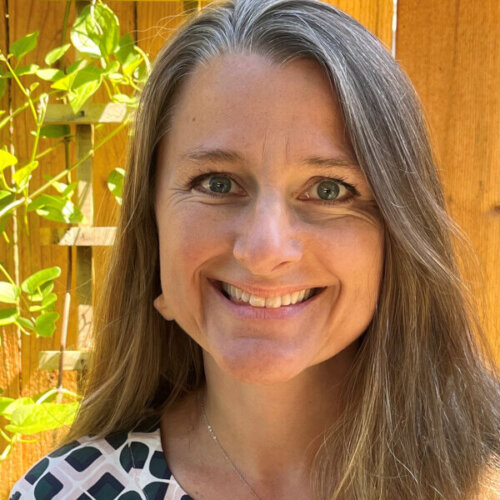
Jenn Dazey, ND, RH (AHG)
Low-Dose/High-Risk: What you need to know to stop your insurance company from dumping you
View abstract
Certain botanicals such as aconite, ephedra, yohimbe, coltsfoot, artemisia, comfrey, and more have been the subject of lawsuits. Although many of these cases have involved misuse or even misidentification, it has made it harder to access and legitimately use in practice. Learn which herbs are the ones we need to prioritize, and how to create SOP’s and disclosure agreements that keep these important, high liability therapeutics in good standing.
Estimated CE credit: 1 Category 1 credit for Washington-licensed NDs.

Calixto Dimas, MD
Next Step Imaging
View abstract
First imaging exam negative/indeterminate. Now what? Discussion and case examples of these situations in musculoskeletal, abdominal and pelvic imaging: the who, what, when and whys of such decision-making.
Estimated CE credits: 1 Category 1 credit for Washington-licensed NDs.
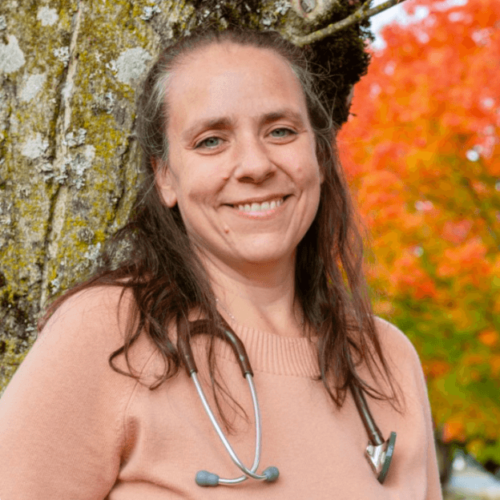
Hatha Gbedawo, ND
Understanding how to diagnose and treat PANDAS/PANS (co-presenter)
View abstract
Pediatric Autoimmune Neuropsychiatric Disorder Associated with Strep (PANDAS) and Pediatric Acute-onset Neuropsychiatric Syndrome (PANS) are relatively new diagnoses impacting as many as 1 in 200 children. Often mistaken for a psychiatric illness, tic disorder or a behavioral health problem, this autoimmune condition is frequently unrecognized and more often misdiagnosed. This may lead to the patient being treated symptomatically with psychotropic medications which, in addition to often causing troubling side effects, do little or nothing to relieve the symptoms. New and ongoing research in the emerging field of psycho-neuro-immunology has demonstrated that these disorders can be caused by infection(s). Appropriate treatment involves the administration of antimicrobials and often anti-inflammatory treatments both of which require careful medical observation and ongoing evaluation. Patients with moderate-severe presentation may require immunomodulatory which can be financially devastating to families due to the lack of insurance coverage.
PANDAS/PANS are clinical diagnoses in which formalized diagnostic and treatment guidelines have been established by leading experts across the country and published in the Journal of Adolescent Psychopharmacology. However, many medical providers are unaware of these guidelines and/or aren’t well versed in screening via their differential which may contribute to delayed recognition, missed or incorrect diagnoses and delayed care. The role of medical support staff and providers is to be aware of these disorders and recognize the temporal relationship of an infection and the onset of neuropsychiatric symptoms. Typically, patients will exhibit tics, obsessions, compulsions, rage outbursts, self-injurious behaviors, mood instability, separation anxiety, food restriction and urinary issues. As these symptoms also occur in other conditions such as Tourette syndrome and a host of psychiatric disorders, it is important for medical clinicians and staff to consider initiating a discussion regarding the possibility of PANDAS or PANS as this recognition may lead to timely, appropriate, and sometimes lifesaving treatments. Research and clinical experience has shown that early recognition of these changes in a child’s functioning and behavior, thorough assessment of the child’s infectious history and exposure and appropriate evaluation of laboratory findings results in timely application of appropriate medical therapies to address the immunological dysfunction and return the child to optimal functioning. It is through this lens of improved focus on post- infectious symptom presentation that we ensure we avoid the pitfalls of overlooked medical disorders with psychiatric presentations which will better serve our communities as we deliver care.
Estimated CE credit: 1 Category 1 credit for Washington-licensed NDs.

Sarah Lemley, MPA
Understanding how to diagnose and treat PANDAS/PANS (co-presenter)

Julie Greenberg, ND, RH (AHG), MBA
Addressing the Root Cause of Eczema: The Gut Microbiome
View abstract
While eczema is a complicated disease with multiple underlying pathologies, there is abundant evidence that a large part of the underlying root cause of eczema stems from gut microbiome dysfunction. This presentation will present the latest published research on the gut/skin connection as well as an overview on how to use functional medicine tests like stool tests and organic acid tests to determine and treat the root cause of eczema. In addition, new advances in pharmaceuticals, supplements, and botanicals for treating eczema will be covered. Eczema doesn’t just affect infants and kids; many people suffer with eczema well into adulthood. Dr. Greenberg will present several eczema case studies with before and after photos and lab results. Attendees will leave this talk with an arsenal of new evidence-based clinical tools to confidently treat their patients’ toughest eczema problems using naturopathic medicine.
Estimated CE credit: 1 Category 1 credit, including 0.15 Pharmacology credit, for Washington-licensed NDs.

Mandy Gulla, ND, LMT
Elegant Access to Veins (co-presenter)
&
A Breakthrough in the Detection of Parkinson's Disease (co-presenter)
View abstract - Veins
Did you learn venipuncture and IV placement and want some pointers? This class is designed for people who have completed all coursework in these classes and want a review and work on details of their placement of venipuncture and IV’s.
Estimated CE credit: up to 2 Category 1 credits for Washington-licensed NDs.
View abstract - PD
Dogs and other many other animals have olfactory capacity superior to that of humans or any device we have been able to make. Dogs are being used in the detection of Parkinson's disease, COVID-19, pancreatic and colon cancers, and to alert diabetic handlers to drops in blood sugar or impending seizures in epileptics. As part of a panel, I will discuss the development of the ParK-9 detection facility, the obstacles to adoption, considerations for research, risks of false positives/ negatives, and the ethics and responsibility of giving an asymptomatic person a positive test result. Recommendations for health care providers attempting to manage asymptomatic individuals with positive test results.
Estimated CE credit: 1 Category 1 credit for Washington-licensed NDs.

Susan Hodge Mueller, ND
Elegant Access to Veins (co-presenter)

Lisa Holt, CNWI, ABCMT
A Breakthrough in the Detection of Parkinson's Disease (co-presenter)

Peter Ledochowitsch, PhD
A Breakthrough in the Detection of Parkinson's Disease (co-presenter)

Jeff Harris, ND
Simple Injection Techniques for Pain Management
View abstract
Injection therapies are easy-to-perform in office procedures that bring pain relief in so many cases. Neural Therapy and Perinural Injection Treatments are easy to apply for pain management. They use procaine and D5W as their injectates which are very safe and part of the Naturopathic formulary.
Estimated CE credits: 2 Category 1 credits, including 1 Pharmacology credit, for Washington-licensed NDs.

Dawn Ipsen, PharmD
Specialty Compounded Medications for Acute and Chronic Pain
View abstract
What is a patient to do when the ‘gold standard’ for pain treatment has failed them? What happens when the side effects from a pain medication outweigh the benefit the medication was providing? What tools are in a provider’s ‘toolbox’ to give this patient an improved quality of life? Specialty compounded medications may provide some of the answers to these questions! We will go through situations of both acute and chronic pain; including muscular vs neuropathic vs mixed mechanism. Opportunities exist for providing improved quality of life via topicals, transdermal, nasal sprays, topical sprays, oral gels and mouth rinses, and vaginal gels or suppositories. Learn more about combining multiple mechanisms of action to maximize the efficacy while minimizing side effects.
Estimated CE credit: 1 Category 1 credit, including 1 Pharmacology credit, for Washington-licensed NDs.

Tera Johnson, CPNP-PC
Basic Suture Repair
&
Pediatric Bronchiolitis and Asthma
View abstract - Suture
Enhance your ability to perform simple, suture repairs in clinic. Pediatric emergency medicine topics for discussion. Will leave this open for questions and answers at the end of the hands-on training portion.
Estimated CE credits: 1 Category 1 credit, including 0.30 Pharmacology credit, for Washington-licensed NDs.
View abstract - Pediatric
Bronchiolitis and asthma are two of the most common conditions leading to hospitalization and death in the neonatal and pediatric populations. Research is also showing a strong link between RSV bronchiolitis infection during infancy and the development of reactive airway disease later in life. It is important that any clinician recognize the signs of respiratory compromise and distress before it leads to respiratory failure. Clinicians will need to determine the appropriate interventions and level of care for the child presenting to clinic with these conditions. Many clinicians overreact when they see a child with increased work of breathing, and it is important they gain the knowledge and become more comfortable with treating children who are experiencing respiratory compromise and or distress. The goal of this presentation is to arm the clinician with the knowledge they will need to recognize and care for any child in acute respiratory compromise or distress. This presentation aims make the clinician feel more comfortable caring for these patients. They will also gain insight on how to educate patients and families regarding anticipatory guidance, strict return to clinic precautions, and went to go seek further care and respiratory support in an emergency department. This presentation will also review the most up-to-date, evidenced based, clinical pathway guidelines to assist in the treatment of these conditions in the outpatient setting.
Estimated CE credit: 1 Category 1 credit, including 0.35 Pharmacology credit, for Washington-licensed NDs.

Kelsey Klausmeyer, ND
The Ins and Outs of Semaglutide for Weight Loss
View abstract
Semaglutide is an old diabetes medication that has received a lot of press recently for weight loss. It seems like everyone is using it from celebrities to the next door neighbor. In our society’s struggle to deal with an obesity epidemic, the search for a magic solution is unending. But how safe is this medication for weight management? This talk will review the prescription and management of semaglutide, cost and supply issues, as well as naturopathic therapies for supporting heathy incretin hormone response.
Estimated CE credits: 1 Category 1 credit, including 1 Pharmacology credit, for Washington-licensed NDs.

Mi-Jung Lee, ND, LAc
Enteroendocrine Dynamics
View abstract
Enteroendocrine system is the largest endocrine organ in the human body and plays a crucial role in the regulation of post-prandial physiology. Via enteroendocrine system, gut speaks to the brain and other organs. This is fundamental in maintaining homeostasis both in feeding and fasting and in health and disease. The gut hormones provide the capacity for integration of nutrient signals to the CNS and exert both acute effects on afferent neurons and longer term effects that determine neuronal phenotype in a way that reflects nutrient status. This mechanism appears to be subverted in obesity, infection and inflammation. Understanding of the regulatory peptides involved in enteroendocrine system should validate the traditional therapeutics for gastrointestinal conditions and pave a new way to develop effective and safe naturopathic treatment modalities.
Estimated CE credits: 1 Category 1 credit, including 0.15 Pharmacology credit, for Washington-licensed NDs.

Laurie Mischley, ND, PhD, MPH
The Nose Knows: The role of olfaction in Parkinson's Disease
View abstract
This presentation will provide an overview on methods of early detection of Parkinson's - with a focus on the prevalence of hyposmia as an early symptom. Recommendations for health care providers attempting to manage asymptomatic individuals with positive test results.
Estimated CE credit: 1 Category 1 credit for Washington-licensed NDs.
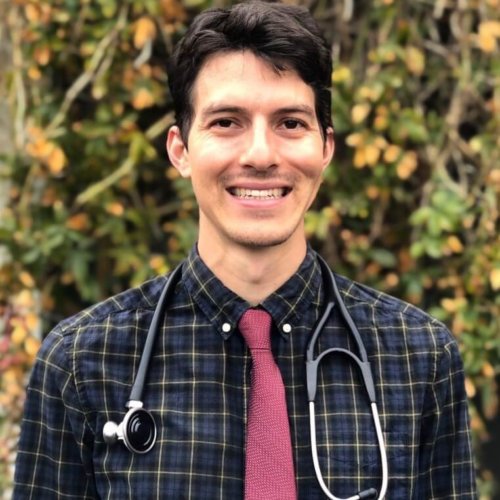
Shawn Morris, ND
Public Health in Washington State: Overview of the public health system, key program areas, and resources for Naturopathic Physicians
View abstract
The presentation will first introduce the scope of public health in our state and provide an overview of the policy process. Then, we will focus on holistic approaches to public health practice, providing key examples of foundational public health program areas, including maternal child health, chronic disease, and communicable disease. For each program area, we will discuss real-world examples from my experience overseeing a rural health department in Washington State. We will review common laboratory tests and medications utilized in public health practice, with a focus on infectious disease, including STI medication and a brief overview of TB medications for LTBI and Active TB. Overall, the goal is to broaden exposure of NDs to the field of public health practice in Washington State. The presentation will include resources and opportunities for additional training.
Estimated CE credits: 1 Category 1 credit, including 0.15 Pharmacology credit, for Washington-licensed NDs.
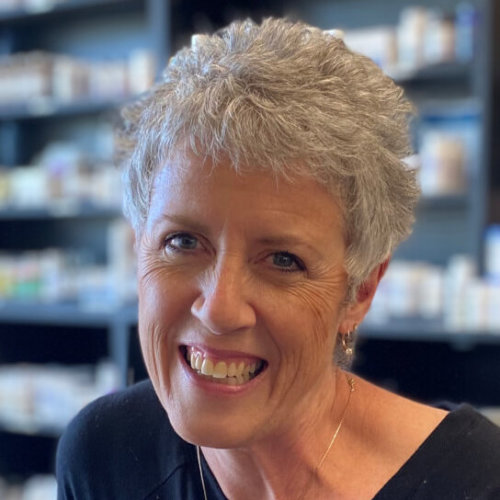
Michelle Moser, RPh
Advanced Dosing Protocols with LDN
View abstract
Low Dose Naltrexone use in various Autoimmune diseases, Long Covid, GI issues, Dermatology & More.
Estimated CE credit: 1 Category 1 credit, including 1 Pharmacology credit, for Washington-licensed NDs.

Glen Nagel, ND
The New Herbal Bitters: New uses for the most ancient of tastes
View abstract
It is believed that the bitter taste and the bitter receptors that receive the bitter substance have predated the Neanderthal man. These ancient tastes one that has been theories to prevent toxic poisoning have now explored in recent research about the power of the bitter agents. There are over 50 types of bitter receptors in the human body, but only three types of sweet receptors. Herbalists and naturopathic and traditional healers have all understood the power of bitters to support digestion, ease bloating and gas but the new model shows that bitters have a much wider role in health and disease. Could chronic thyroid disease, heart disease, and metabolic disease and diabetes be a bitter deficiency? Is our aversion to bitter foods and herbs hurting our health? In this talk, we will cover the emerging theories and look that the reach that brings a new world of activity for the most ancient of tastes: Bitter. Participants will take a walk in Bastyr Gardens and identify 5-10 classic bitter herbs, we will discuss the clinical use of bitters and collect the herbs to make a bitter digestive tonic at the end of class with herbs and alcohol.
[Note: This course is divided into two parts - the first hour will be lecture-based for all attendees; the second hour will be lab-based only for those who pre-register.]
Estimated CE credits: 1 Category 1 credit for lecture + 1 Category 1 credit for Lab for Washington-licensed NDs.

Joseph Pizzorno, ND
"Unimportant" Molecules, Unintended Consequences
View abstract
Over the past century, cumulative decisions made on prioritization of biochemistry research, changing seed varietals, chemically growing foods and food processing have combined to substantially decrease the diversity of molecules in the food supply. They were lost because they were considered “unimportant” for life and therefor did not need to be conserved as modern agriculture evolved. A considerable amount of research now shows that these “unimportant” molecules play many critical roles in health maintenance and disease prevention. Just like in plants, these diverse molecules are antiviral, antibacterial, protect against oxidative stress, prevent cancer, promote mitochondrial function, increase excretion of toxic chemicals and metals—the list is long and growing and clinically very important.
Estimated CE Credit: 1 Category 1 credit for Washington-licensed NDs.

Carly Polland, ND
Microbiome Testing in Clinical Practice: Review of stool testing techniques and an advanced introduction to the microbiome
&
Clinical Applications of Next Generation Sequencing: Unlock your patient’s microbiome & create personalized gut protocols
View abstract - Testing
Ever wonder what stool test you should be ordering for your patient? In this lecture, we will review the research to assess culture, PCR, and next generation sequencing stool testing, including 16S rRNA sequencing, whole genome sequencing, and metatranscriptomic sequencing. We will review best methodologies for assessing bacteria, yeast and parasites in the microbiome as well as best practices for stool collection. Lastly, we will review the most up to date research on the relative abundance of different bacteria in the large intestine.
Estimated CE credit: 1 Category 1 credit for Washington-licensed NDs.
View abstract - Sequencing
We all know a healthy microbiome is crucial to health. But how can we deliver personalized medicine for our patient’s microbiomes when many stool tests reveal less than 5% of the microbiome and most probiotics make up less than 3% of a healthy microbiome? In this lecture, we will explore how different next generation sequencing techniques can be used in clinical practice to fully explore and treat our patient’s microbiome. We will explore a framework to assess next generation sequencing data in order to identify microbiome imbalances that may contribute to symptoms and disease. We will then explore evidenced-based therapeutics to modify the microbiome. We will go beyond standard probiotics and discuss the clinical applications of nutrition, nutraceuticals, botanicals, prebiotics, probiotics, and postbiotics in microbiome restoration.
Estimated CE credit: 1 Category 1 credit for Washington-licensed NDs.

Joshua Rubinstein, ND
Punch Biopsies for Primary Care Physicians
View abstract
In this hands-on workshop participants will review indications for biopsy of suspicious or unknown skin lesions. We will then review performing punch biopsies and practice this skill.
Estimated CE credit: Up to 2 Category 1 credits, including 0.15 Pharmacology credit, for Washington-licensed NDs.

Heather Sandison, ND
An Evidence Based Naturopathic Approach to Dementia Care
View abstract
Through a series of case studies, you will learn an up-to-date naturopathic approach to evaluation, testing, treatment and re-evaluation for those suffering with dementia. You will also learn the history of dementia and why NDs are best positioned to meet the needs of a growing population suffering with dementia. You will understand the conventional approach to the treatment of dementia, learn the clinical course to chart and what to expect as your patients move through the process of applying precision and lifestyle medicine to reversing cognitive decline.
Estimated CE credit: 1 Category 1 credit for Washington-licensed NDs.

Jody Stanislaw, ND, CDCES
How to Dose Insulin Properly
View abstract
Dosing insulin is a complex process, not to mention one that many doctors and patients resist. Dr. Stanislaw will cover when and how to start a patient on insulin, how to overcome common barriers, the differences between the many brand options available, the difference between rapid and long-acting, pros and cons of pump therapy,, how to set an insulin to carb ratio but why carb counting at meal times to determine an accurate dose is not enough, how to use a correction factor, ways to make insulin peak faster, how to avoid insulin stacking, how to keep blood sugar steady during exercise, doctor versus patient responsibilities when on insulin, and more. Insulin is a potential lethal drug if not dosed properly. However, the strategy given to most patients who inject insulin is to either take a set daily dose, without instruction on when/why/how to adjust it, or use a dosing formula based solely on how many carbohydrates are about to be consumed. Neither is a solid strategy for achieving healthy blood sugar control given the many variables that patients experience in day-to-day life which affect how injected insulin functions in the body. This discussion will highlight the countless and often ignored variables that doctors, and patients should consider before dosing insulin.
Estimated CE credits: 1.5 Category 1 credits, including 1.5 Pharmacology credits, for Washington-licensed NDs.

Jillian Stansbury, ND
Low Dose Botanicals
View abstract
This session will review the safe clinical uses of Atropa belladonna, Hyoscyamus niger, Colchicum autumnal, Aconitum napellus, and Gelsimium sempervirens. We will review specific indications, toxicity concerns, and sample formulas demonstrating expected usage of this prescription-only botanical agents.
Estimated CE credits: 2 Category 1 credits for Washington-licensed NDs.

Megan Taylor, ND
Exocrine Pancreatic Insufficiency & Bile Acid Malabsorption: Commonly missed IBS-mimickers
View abstract
Irritable bowel syndrome (IBS) is THE most common gastrointestinal diagnosis, with an estimated 10-15% of adults in the United States experiencing symptoms consistent with this condition (Camilleri, 2021). Since the Rome IV Criteria were published in 2016, IBS is no longer considered a diagnosis of exclusion, and is instead diagnosed based on a set of clinical criteria. While this has decreased barriers to diagnosis and increased timeliness of treatment, it is also leading to a likely OVER diagnosis of IBS. There are many conditions that can present quite similarly to IBS that are not routinely assessed for in most preliminary clinical work-up, including Exocrine Pancreatic Insufficiency & Bile Acid (Salt) Malabsorption. This presentation will review these commonly missed diagnoses, with a focus on clues to recognize clinically and integrative management plans.
Estimated CE credit: 1 Category 1 credit, including 0.2 Pharmacology credit, for Washington-licensed NDs.
Our CONNECT 2023 Call for Speakers is no longer open. However, if you have an idea for a presentation, we would love to consider your proposal for one of our future events. Please complete the form below to be considered as a speaker for the WANP.






